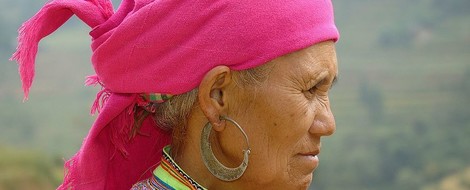Your podcast discovery platform
Curious minds select the most fascinating podcasts from around the world. Discover hand-piqd audio recommendations on your favorite topics.

piqer for: Climate and Environment Global finds
Born in the south of Mexico, she was raised in rebel Zapatista autonomous municipalities to later settle down in San Cristobal de las Casas where she cofounded ''La Casa de las Flores'', a non-profit dedicated to educate, feed and care for the marginalized children living on extreme poverty in the streets of her city. After graduating from Nursing school she enrolled in Biotechnology and Astrophysics.
The World's Most Beautiful Language?
"If you talk to a man in a language he understands, that goes to his head. If you talk to him in his language, that goes to his heart."
— Nelson Mandela
Music is the universal language of mankind. No matter who we are or where we are from, music can make us all feel a vast range of emotions, can make us think and see in different ways, can inspire us, boost us just the same way it can break and overwhelm us.
Humans have been creating music for over 40,000 years and research suggests it may have allowed our distant ancestors to communicate before the invention of language, been linked to the establishment of monogamy and helped provide the social glue needed for the emergence of the first large early and pre-human societies. The Hmong people, an ethnic group inhabiting the foothills of the Himalayas, communicate in a language of music, a language of whistles.
To hear their beautiful melodies is like sitting in the middle of a forest listening to the sound of birds singing, and to know this dazzling melodies hide in them complex and elaborate messages demonstrates the incredible human abilities to communicate and the capacity of the brain to break down and interpret harmonious keys and chords into thoughts, ideas and feelings.
From someone who doesn't know how to whistle, the skill of the Hmong people is a knowledge I'd definitively like to have.
